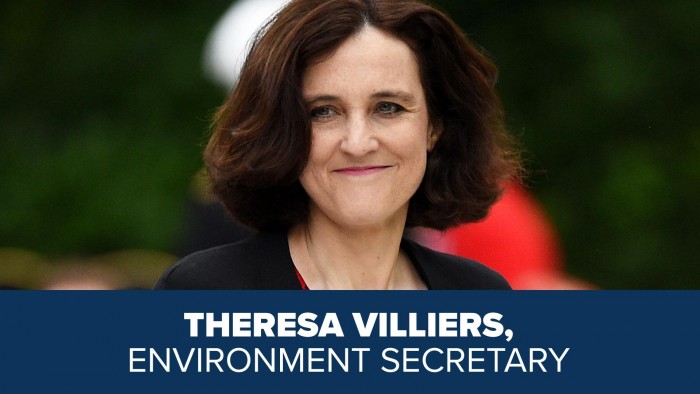The government has introduced a landmark Bill to Parliament to tackle the biggest environmental priorities, which it claimed signalled an historic change in the way we protect and enhance our natural environment.
Defra said the Bill would build on the UK’s strong track record and “sets out a comprehensive and world-leading vision to allow future generations to prosper”. Environmental principles will be enshrined in law and measures will be introduced to improve air and water quality, tackle plastic pollution and restore habitats so plants and wildlife can thrive.
Legislation will also create legally-binding environmental improvement targets. A new independent Office for Environmental Protection will be established to scrutinise environmental policy and law, investigate complaints and take enforcement action against public authorities, if necessary, to uphold environmental standards.The office’s powers will cover all climate change legislation and hold the government to account on its commitment to reach net zero emissions by 2050.
Responding to the publication of the Environment Bill, NFU President Minette Batters said: “The Environment Bill appears broad and ambitious and we will examine the details in the coming days to get a much clearer picture of how the proposed measures for protecting and enhancing our environment are joined up with policies that enhance farmers’ ability to produce food for the nation.
“The farming industry has already embarked on a long journey of protecting, maintaining and enhancing our iconic British countryside, carrying out huge amounts of work to enhance landscapes, benefit soils, water, and air quality, encourage wildlife, and reduce impact on the climate.
“Government, through this Environment Bill, needs to make certain that food production and land management policies go hand-in-hand; where measures for protecting and enhancing the environment are joined up with policies that support farming’s ability to improve productivity and to manage volatility to ensure we have profitable, productive and progressive farm businesses, both now and in the future.
The Bill, announced in the Queen’s Speech will:
- ensure the environment is at the heart of all government policy making and that this government – and future governments – are held to account if they fail to uphold their environmental duties, including meeting net-zero by 2050, and wider long-term legally binding targets on biodiversity, air quality, water, and resource and waste efficiency established under the Bill
- improve air quality – by fighting pollution so children and young people can live longer healthier lives. We will do this by setting an ambitious, legally-binding target to reduce fine particulate matter, PM2.5, and by increasing local powers to address sources of air pollution, enabling local authorities to work with families to cut harmful pollution from domestic burning by using cleaner fuels. The government will also be empowered to mandate manufacturers to recall vehicles when they do not meet the relevant environmental standards
- restore and enhance nature – through ‘biodiversity net gain’ ensure that the new houses we build are delivered in a way which protects and enhances nature, helping to deliver thriving natural spaces for local communities. We will improve protection for our natural habitats in supporting a Nature Recovery Network by establishing Local Nature Recovery Strategies and giving communities a greater say in the protection of local trees
- transform the way we manage our waste – through powers to ensure that producers take responsibility for the waste they create, introducing a consistent approach to recycling, tackling waste crime, introducing bottle deposit return schemes and more effective litter enforcement. Powers to introduce new charges will minimise the use and impacts of single use plastics
- protect precious water resources – by increasing sustainable water management through securing long-term, resilient water and wastewater services in the face of a changing climate. Powers to direct water companies to work together to meet current and future demand for water will make planning more robust


